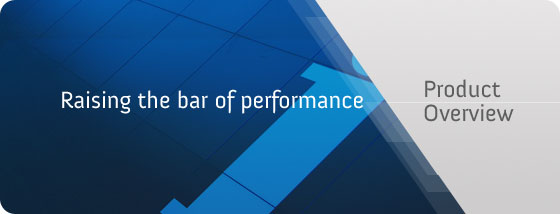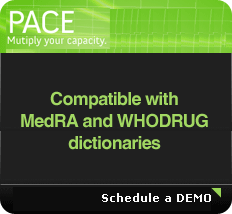 |
|
|
PHARMAMATICS dictionary management/coding solutions and services are backed by an insight from over one and half decade supporting hundreds of phase I – phase IV clinical trials and large pharmacovigilence databases for global bio-pharmaceutical, device/CRO majors. They are designed to allow small organizations implement and utilize mature dictionary management and coding practices easily and large organizations to optimize and benefit from the significant efficiencies our systems and services offer. Medical dictionaries (MedDRA, WHODRUG or legacy) and how they are used affects several important activities at the very core of a bio-sciences organization's fundamental goal: to bring innovative therapeutics to the market cost effectively and keeping them there. The chief strengths (large size, high granularity and constant maintenance) of standards such as the MedDRA dictionary can help enhance the quality and reliability of critical functions such as accurate capture and exchange of safety information, aggregation of reported terms, identification of common data sets, consistent case retrieval and generation/evaluation of safety signals. But these strengths are double edged as the same factors can also encumber effective dictionary management and coding practices that are foundational for all the above activity. If the additional costs of size and complexity are not adequately mitigated through planning and practice backed by knowledge and skill the full benefits of switching to standards such as MedDRA may not be realized. In fact, implementing a truly effective dictionary management and coding practice has to be based on an organization’s historic practices, state of implementation and utilization of various activities, knowledge of the emerging context and changes in it and an ability to bridge cross-functional needs with cross-functional expertise - ensuring, always, that scarce resources are optimally utilized. |
| ©2009 Pharmamatics Inc. All rights reserved. |
